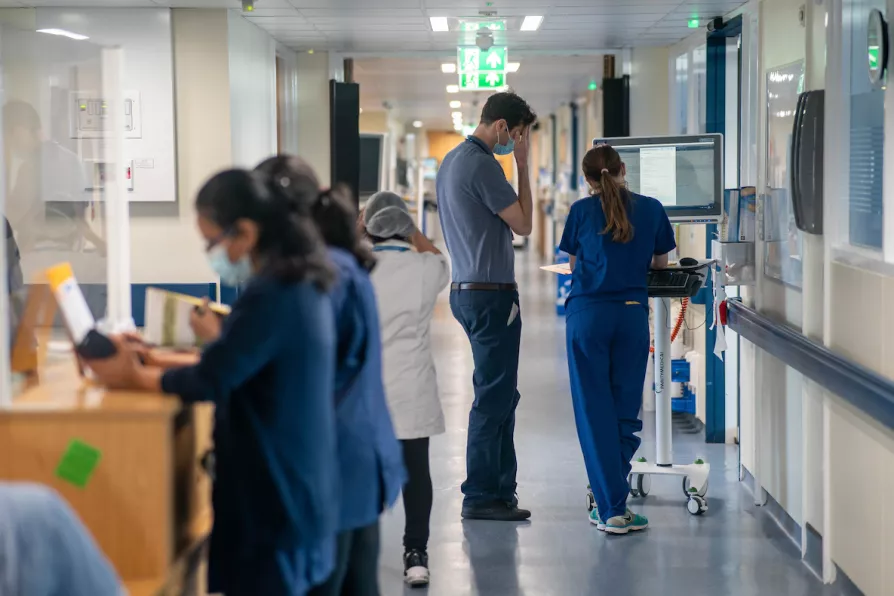
 A general view of staff on a NHS hospital ward at Ealing Hospital in London
A general view of staff on a NHS hospital ward at Ealing Hospital in London
LABOUR’S plans to cut NHS waiting lists will not get far without huge investment, think tanks warned today.
Party leader Sir Keir Starmer pledged to create a health service that is “there for everyone” and said that slashing waiting lists would be the first step for a Labour government to get the NHS “back on its feet.”
If his party wins the general election, Labour will initially focus on reducing the backlog of delayed treatments, currently 7.54 million.
The party claims the figure could rise to 10 million if the Tories retain power.
Labour’s first step would be to create an additional 40,000 appointments, scans and operations a week during evenings and weekends.
It also vowed to double the number of scanners in order to diagnose patients earlier, which would cost about £1.3 billion.
The measure would be funded by clamping down on tax dodgers and tightening up the rules on non-domiciled people, the party said.
Nuffield Trust chief executive Thea Stein welcomed Labour’s focus on waiting lists, but she warned that £1.3bn would “cover only a limited amount of extra care” and would not be enough for “a rapid or sudden improvement.”
“Labour is right to focus on waiting lists, where progress has been slow and our analysis of the British Social Attitudes survey shows public concern is very high,” she added.
“We support the intention to spend more money on equipment, historically the victim of short-termism.”
Health Foundation senior analytical manager Kathryn Marszalek warned that tackling waiting lists through weekend and evening work “must not come at a cost to staff well-being.”
She also called on the next government to “provide stable, long-term investment to meet the high demand for both hospital and primary care.”
The King’s Fund chief executive Sarah Woolnough said that plans to tackle the backlog in five years “would almost certainly require a swift resolution to ongoing industrial action.”
She also highlighted the need for greater focus on preventing ill health and providing community care.
Institute for Fiscal Studies research economist Max Warner said that previous Labour governments had been successful in reducing waiting times, but that this achievement had come alongside “large increases in health spending.”
He said:“The challenging fiscal situation facing the next government will make it incredibly difficult to increase health spending at anywhere near similar rates and will make achieving this commitment much harder.”

















